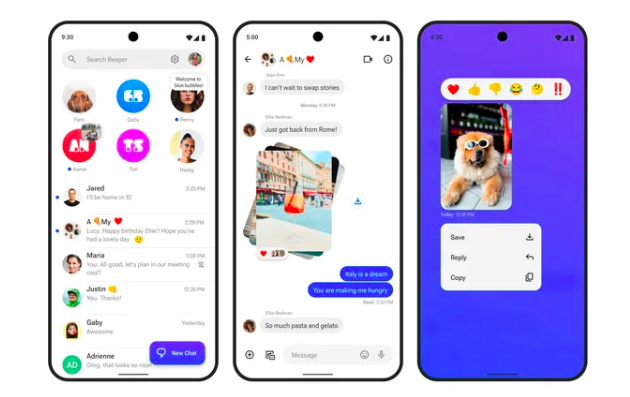Beeper’s Attempt to Revive iMessage on Android Requires a Trusted Mac
Beeper, the messaging platform, claims to have devised a new solution to enable users to send iMessages from their Android devices. The catch is that this fix necessitates access to a trusted Mac. Initially, Beeper utilized its own fleet of Mac servers to supply the identification information, known as “registration data,” required for iMessage connectivity. However, Apple promptly shut down this approach due to thousands of Beeper users relying on the same registration data. Beeper’s latest strategy involves an update to Beeper Cloud on Mac, set to release soon, enabling the app to generate “unique” registration data. This Mac registration data will also be compatible with Beeper Mini, the Android app that sparked this entire situation.
According to Beeper, this “1:1 mapping of registration data to individual user” improves the connection’s reliability. Users are expected to periodically refresh the registration data, approximately once per week or month, by turning on their Mac. The company claims that users can share registration data with friends, with 10-20 iMessage users safely utilizing the same data in their testing. Beeper has also committed to open sourcing its iMessage bridge and the tool for Mac that creates registration data. However, while these updates appear promising, they restrict the broader accessibility that initially defined Beeper Mini. The original Beeper Mini version only required an Android smartphone and a phone number, but Apple found a way to disrupt it within days.
Apple has not issued an official response to Beeper’s recent developments, but given the company’s history of thwarting Beeper’s attempts to enable iMessage on Android, it’s likely that Apple will continue its efforts to counteract these workarounds.
The Evolution of Beeper’s iMessage Access on Android
Beeper has been on a quest to provide Android users with access to iMessage, a popular messaging platform typically exclusive to Apple devices. The journey began with Beeper Mini, an Android app that allowed users to send iMessages without requiring an Apple device. However, Apple swiftly intervened and found a way to disrupt the functionality, prompting Beeper to pivot. The next iteration involved logging in with an Apple ID, but even this approach began encountering issues, leading to service interruptions for many users.
The latest attempt involves creating unique registration data using a Mac, a departure from Beeper Mini’s original simplicity. Users must now periodically refresh this data by regularly turning on their Mac. While Beeper claims that sharing registration data among friends is possible, it still adds a layer of complexity that may impact the user experience. The ongoing cat-and-mouse game between Beeper and Apple raises questions about the feasibility of providing Android users with seamless access to iMessage, a feature that has long been a distinctive part of the Apple ecosystem.
Beeper’s Response to Apple’s Disruptions and Future Implications
Beeper’s persistent efforts to offer iMessage functionality on Android devices underscore the demand for cross-platform messaging solutions. However, the continuous disruptions from Apple highlight the challenges of circumventing the closed nature of Apple’s ecosystem. The latest fix, requiring a trusted Mac and periodic data refreshes, introduces additional steps for users seeking iMessage on Android. This workaround may appeal to tech-savvy users, but it remains to be seen how the broader Android user base will respond to the increased complexity.
As Beeper moves forward with its strategy and opens up its iMessage bridge and tools for public scrutiny, the landscape of cross-platform messaging solutions may witness further developments. The ongoing legal and technological battles between Beeper and Apple highlight the broader discussions around app store policies, platform openness, and user choice. While Beeper continues to explore avenues for providing iMessage access on Android, Apple’s response and potential future actions will shape the trajectory of this ongoing saga.

